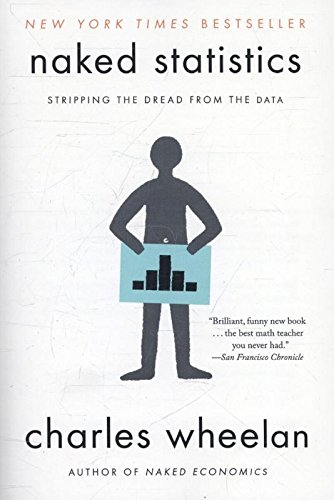 |
| Image source: Amazon. |
I am currently really enjoying reading Charles Wheelan's excellent book "Naked Statistics: Stripping the Dread from the Data", and one of his first questions is "What is the point of learning statistics?". It's actually a question I find hard to answer myself - I usually mutter stuff about being better able to understand data and to prove a hypothesis is true/untrue. But Wheelan comes up with excellent reasons why we should study statistics:
- To summarize huge quantities of data
- To make better decisions
- To answer important social questions
- To recognise patterns that can refine how we do everything from selling diapers to catching criminals
- To catch cheaters and professional criminals
- To evaluate effectiveness of policies, programs, drugs, medical procedures, and other innovations
- And to spot the scoundrels who use these very same powerful tools for nefarious ends
While the first two points above seem obvious, the remainder do not immediately jump to the mind of someone considering studying statistics.
Studying statistics involves learning a lot of tests - a lot. Figuring out how to set a hypothesis doesn't come easy, and can take a long time to get used to it (I even still struggle sometimes when confronted with a new situation, and I have been teaching this stuff for five years!). But just like everything else, the more you practice, the better you get. Probably for me the biggest thing about statistics is that it gives you value - once you have done the tests, you can analyse the results to make sense of them. Tools such as Excel, R, and SPSS are making statistics easy to do, but you still need to understand and interpret the results.
To finish this post with a quote attributed to H.G. Wells (1866-1946):
“Statistical thinking will one day be
as necessary for efficient citizenship
as the ability to read and write”
No comments:
Post a Comment